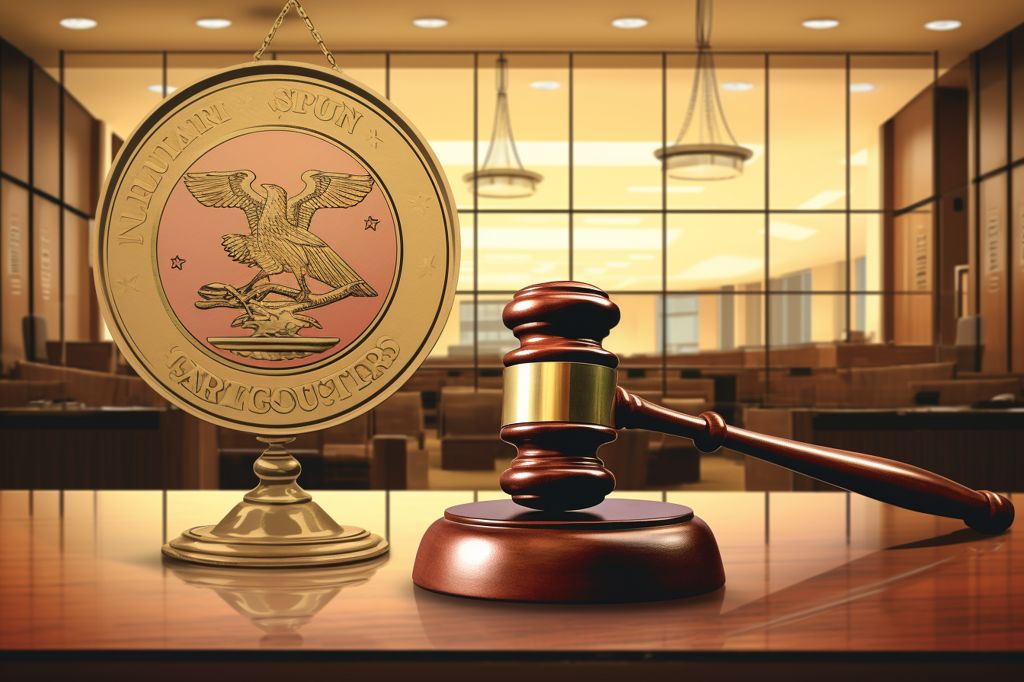The Gauteng Provincial Legislature has recently responded to a complaint regarding the alleged violation of the Code of Conduct for its members. The complaint was lodged against Hon. Mekgwe, the Speaker of the Gauteng Legislature, Hon. Nkomo-Ralehoko, Member of the Executive for the Department of Health, and Hon. Phaladi-Digamela, the Chairperson of the Health and Wellness Committee. The complaint prompted an investigation by the Integrity Commissioner.
The Role of the Integrity Commissioner
According to Rule 277 (2) of the Gauteng Provincial Legislature Standing Rules, the Integrity Commissioner is responsible for initiating, receiving, investigating, adjudicating, and recommending matters concerning any breach of the Conflict of Interests Code and Disclosure Framework (Code) for Members of the Gauteng Provincial Legislature.
Thorough Review of the Complaint
Upon receiving the complaint, the Integrity Commissioner conducted a thorough review of the concerns raised and performed a comprehensive assessment of the information provided. However, their findings revealed that the concerns raised pertained to labor-related matters, which are not within the authority of the Integrity Commissioner to address or resolve directly.
No Evidence Found
Consequently, no evidence was found to support the allegation of a violation of the Code. As a result, the office of the Integrity Commissioner will not be investigating this matter any further.
Further Resolution
While this outcome may not align with the complainant’s expectations, the matter has been referred to the Chairperson of the Health and Wellness Committee for further resolution.
Legislature’s Commitment to Ethics and Integrity
The Gauteng Legislature’s commitment to ensuring its members adhere to the highest standards of conduct and transparency is evident in its swift response to the complaint. By involving the relevant authorities and comprehensively assessing the allegations, the Legislature demonstrates that it takes matters of ethics and integrity seriously.
Reinforcing Public Trust
As the Chairperson of the Health and Wellness Committee works towards a resolution, the public’s trust in the Legislature’s commitment to upholding ethical standards is expected to be reinforced. In light of this incident, it is essential for government institutions to maintain a continuous process of self-examination and improvement.
Importance of Addressing Allegations of Misconduct
In the broader context, this case exemplifies the importance of having a robust system in place to address allegations of misconduct within any government body. By establishing a well-defined procedure for handling complaints, government institutions can ensure that any issue is dealt with promptly, fairly, and effectively, thus maintaining public trust.
Upholding Ethical Standards in Government
While this specific case did not find evidence of a violation of the Code, the Legislature’s response serves as an important reminder of the need to remain vigilant about upholding ethical standards in government. It is crucial for all members of government institutions to understand and abide by the codes of conduct that govern their positions and maintain a culture of transparency and accountability.
Overall, the Gauteng Legislature’s response to the alleged violation of the Code of Conduct for its members highlights the importance of having a clear, unbiased process in place for addressing complaints. As government institutions continue to evolve and adapt, it is vital to maintain a strong focus on ethical conduct and commitment to transparency, ultimately fostering a culture of integrity and public trust.








